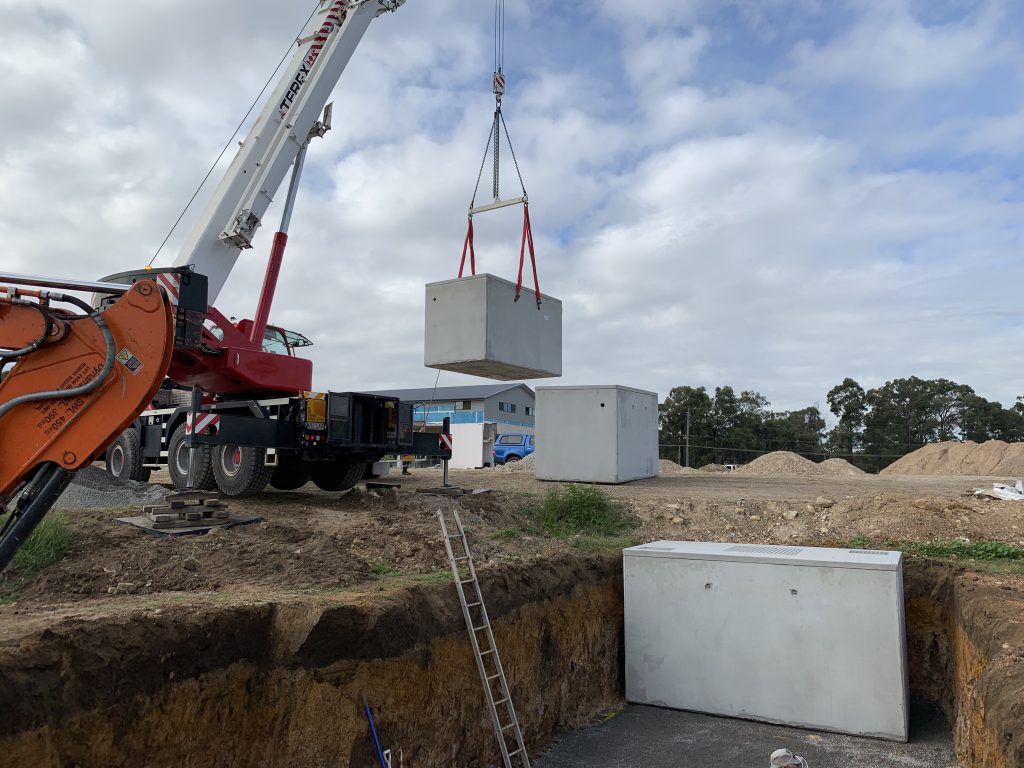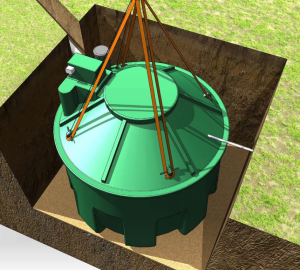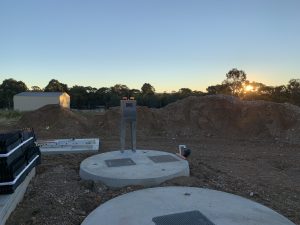Septic Tank vs. Sewer System: Making the Right Choice for
Your Sydney Property
Understanding the Septic Tank System
A Septic tank system is a decentralized wastewater treatment solution typically used in areas without access to centralized sewer systems. It consists of three main components: the septic tank, the drain field, and the soil.
Septic Tank: The septic tank is an underground container that collects and treats wastewater from your home. It separates solid waste (sludge) from liquid waste (effluent) using a natural anaerobic digestion process. The treated effluent is then dispersed into the drain field for further purification.
Drain Field: Also known as the leach field, this area disperses the treated effluent into the soil, allowing natural filtration to remove any remaining contaminants.
Soil: The surrounding soil acts as a final treatment stage, ensuring the safe percolation and purification of the effluent before it reaches groundwater.
Pros of a Septic Tank System
1) Septic tank systems are generally more affordable to install and maintain than centralized sewer systems, making them a practical choice for properties in areas without access to sewers.

2) A well-maintained septic tank system relies on natural processes for wastewater treatment, minimizing the need for energy-intensive operations and reducing the carbon footprint.
3) With a septic tank system, your property is not reliant on a municipal sewer network, providing a self-contained wastewater management solution.
4) Properly maintained septic tanks can effectively treat wastewater, reducing the risk of pollution and contamination.
Cons of a Septic Tank System
1) Homeowners are responsible for regular septic tank maintenance, including inspections and pumping, to ensure the system’s optimal performance.
2) Septic tanks have a finite capacity for waste storage, which can be a consideration for larger households or properties with high water usage.
Understanding the Sewer System
A sewer system is a centralized wastewater collection and treatment network managed by municipal authorities. In areas with sewer systems, individual properties are connected to a network of underground pipes that transport wastewater to a treatment facility.
Pros of a Sewer System
1) Homeowners do not need to worry about septic tank maintenance as the municipality takes care of the entire wastewater treatment process.
2) Sewer systems have a significant capacity to handle large volumes of wastewater, making them suitable for densely populated areas.
2) With a sewer system, homeowners do not need to schedule septic tank inspections or worry about pumping schedules.
Cons of a Sewer System
1) Properties connected to a sewer system typically incur ongoing sewer fees, which can be higher than the maintenance costs of a septic tank system.
2) Sewer systems can be susceptible to overflows during heavy rainfall or blockages, potentially leading to environmental contamination
Making the Right Choice for Your Sydney Property
Consider the following factors when deciding between a septic tank system and a sewer system for your Sydney property:
Location: Assess whether your property is located in an area with access to a municipal sewer system. If sewer lines are available, you have the option to connect to the sewer system or choose a septic tank if you prefer greater independence.
Property Size and Water Usage: Evaluate your household’s water usage and the size of your property. Larger properties and households with high water usage may benefit from the larger capacity offered by a sewer system.
Environmental Impact: If you prioritize eco-friendliness and wish to reduce your carbon footprint, a well-maintained septic tank system can be a more sustainable choice.
Long-Term Costs: Compare the initial installation costs, ongoing sewer fees, and maintenance expenses of both options to determine which aligns with your budget.
Maintenance Responsibility: Consider whether you are comfortable with the responsibility of maintaining a septic tank or prefer the convenience of a sewer system managed by the municipality.
Future Property Plans: If you plan to expand your property or make significant changes, consider how the choice between a septic tank system and a sewer system may impact your future plans.
Deciding between a septic tank system and a sewer system for your Sydney property involves careful consideration of various factors. Both systems have their pros and cons, and the right choice depends on your property’s location, size, environmental preferences, and long-term budget. A septic tank system offers cost-effectiveness, environmental benefits, and independence, while a sewer system provides convenience and no maintenance responsibility. Whichever option you choose, it’s essential to prioritize proper maintenance and responsible wastewater management to ensure the well-being of your property and the environment. Consult with local experts and authorities to make an informed decision that suits your needs and contributes to sustainable living in Sydney, NSW.
For a Free Quote and Sizing on all Septic Tanks Made in Australia call the team at Eco-Septic on 1800 808 135
Related Posts
- Why aerated wastewater treatment servicing is important
- How Many Years Is A Septic System Good For?
- Septic Tanks vs. AWTS: Which Is Better for Your Sydney Property?
- Why is Aeration Used in Wastewater Treatment
- Sustainable Septic Systems: Embracing Indigenous Wisdom for Modern Living
- Why would you need a sewage treatment plant?
- Eco-Septic Wastewater Treatment Systems Tailored To Your Needs
- Why Is Wastewater Aerated?





